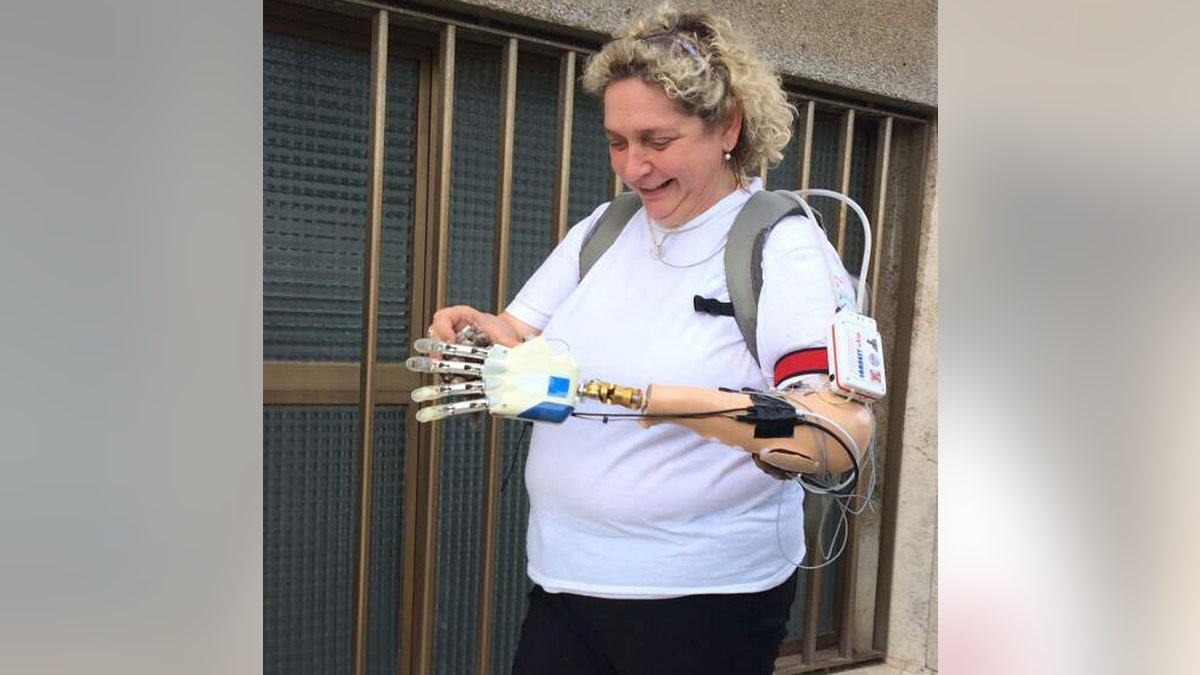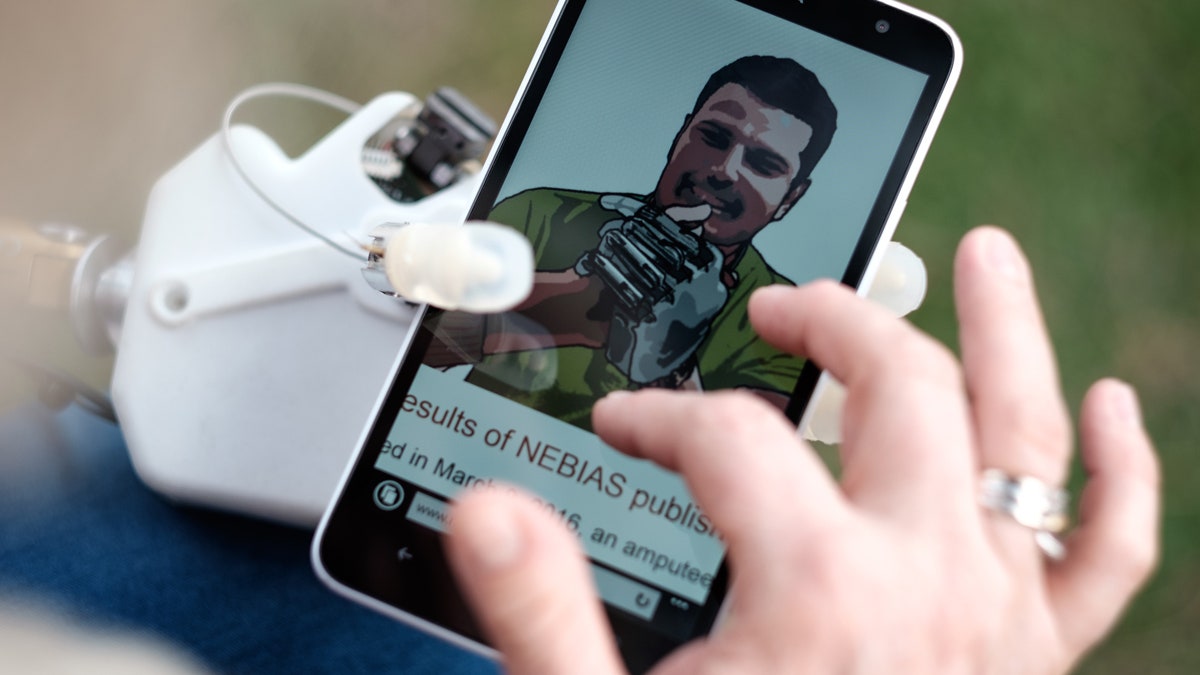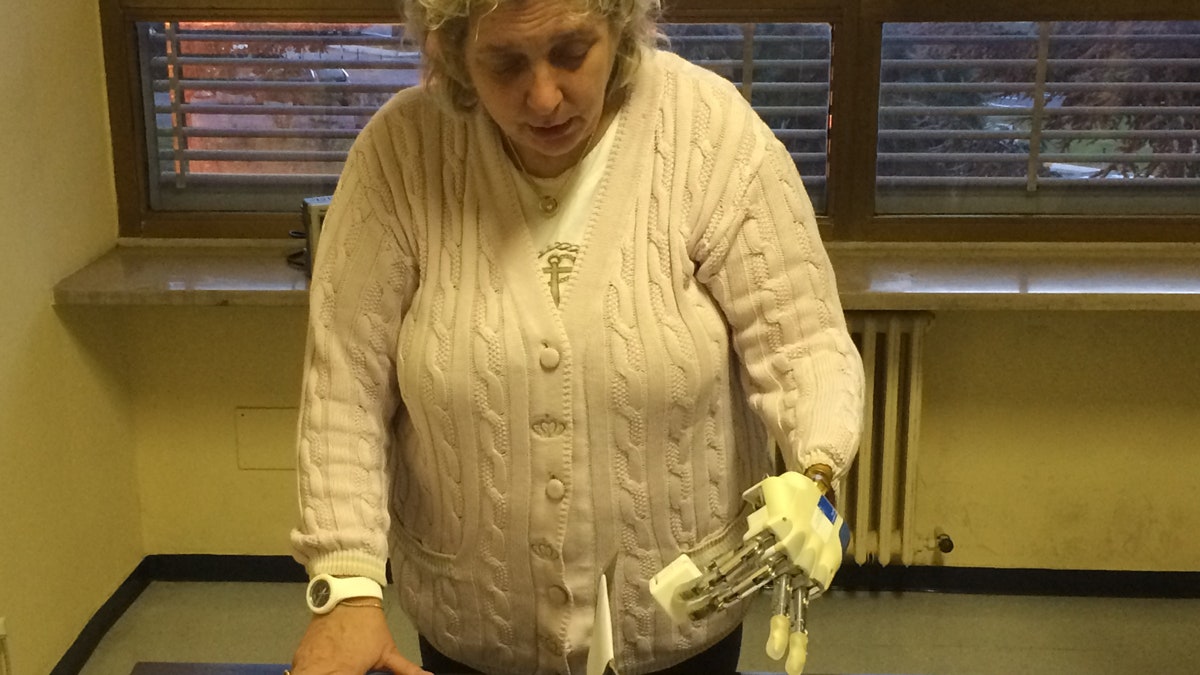
Almerina Mascarello, seen above, was able to use a bionic hand being developed by researchers in Italy. (Sant'Anna School of Advanced Studies)
A woman who lost her left hand in an accident is getting a second chance thanks to a new bionic hand with a sense of touch unveiled by researchers.
Almerina Mascarello, who lost her left hand nearly 25 years ago, said “it’s almost like it’s back again.”
The BBC reports that an international team that includes engineers, neuroscientists, surgeons, electronics and robotics specialists developed the bionic hand in 2014—but the sensory and computer equipment it was linked to was too large to leave the laboratory.
GERMANY CAN NOW FINE SOCIAL MEDIA SITES FOR ALLOWING HATE SPEECH
However, the technology is now small enough to fit inside a backpack, making it portable.
The prosthetic hand has sensors that detect information about whether an object is soft or hard. Those messages are linked to a computer in a backpack that converts them into a language the brain can comprehend.

Sant'Anna School of Advanced Studies
The information then gets relayed to Almerina's brain via tiny electrodes implanted in nerves of her upper arm.
In tests, Almerina — who was blindfolded — was able to tell whether the object she was picking up was hard or soft.
She told the BBC: “The feeling is spontaneous as if it were your real hand; you're finally able to do things that before were difficult, like getting dressed, putting on shoes—all mundane but important things—you feel complete."
This represents another advance in neuroprosthetics, the interface between machine and the human body.
"We are going more and more in the direction of science fiction movies like Luke Skywalker's bionic hand in Star Wars - a fully controlled, fully natural, sensorised prosthesis, identical to the human hand,” Professor Silvestro Micera, a neuroengineer at EPFL in Lausanne and Sant'Anna School of Advanced Studies in Pisa told the BBC.

Almerina Mascarello, seen above, was able to use a bionic hand being developed by researchers in Italy. (Sant'Anna School of Advanced Studies)
The team believes that a robotic prosthesis better than the human hand may eventually become a reality.
Professor Paolo Rossini, a neurologist at University Hospital Agostino Gemelli, Rome told the BBC: “Once you can control a robotic prosthesis with your brain you can think about creating one that allows more complex movements than a hand with five fingers.”
Almerina kept the bionic hand for six months, but it has now been removed, as it is still a prototype.
When the bionic hand is perfected, Almerina said she would like it back for good.




















